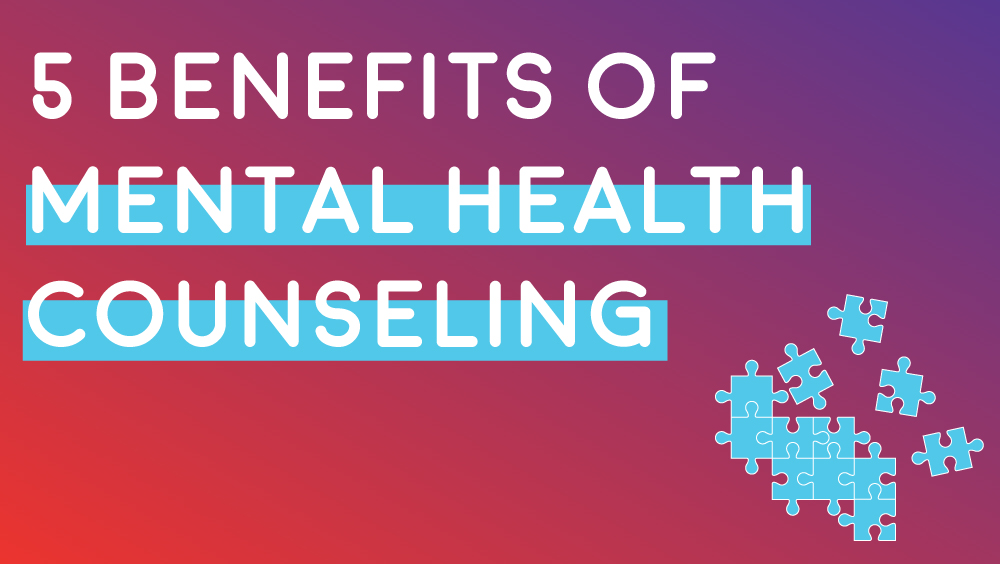The Single Strategy To Use For Mental Health Counseling
The Single Strategy To Use For Mental Health Counseling
Blog Article
All about Mental Health Counseling
Table of ContentsHow Mental Health Counseling can Save You Time, Stress, and Money.The Greatest Guide To Mental Health CounselingFacts About Mental Health Counseling UncoveredThe Mental Health Counseling IdeasThings about Mental Health Counseling
With therapy, you can gain understanding into your very own patterns of actions and communication, which can result in even more fulfilling and pleasing relationships with good friends, family, and charming partners. What we think, we materialize. If you're taken in with unfavorable feelings and adverse ideas that are disrupting your life, therapy can help.Like our thoughts, occasionally our habits come to be harmful. They can keep us from living a favorable and healthy and balanced lifestyle. Perhaps you battle with addiction, or you tend to self-sabotage, or there are various other adverse ways you behave. Mental Health Counseling. Therapy can help you alter those actions that are having an unfavorable influence on your world and relationships.

The significance of therapy exceeds your mental health and wellness. Obtaining therapy to attend to particular elements of your life can help you be a lot more efficient in other locations, consisting of work. Some study has actually also shown that there's a straight connection between looking for mental wellness aid and a decrease in missed work.

A Biased View of Mental Health Counseling
You can see a therapist when things are going truly well in your life, or when you will experience a big life transition." Talkspace therapist Kate Rosenblatt, MA, LPC, LMHC. Yet there are even more benefits of therapy than just the ones we have talked about. Therapy can teach you how to handle separation, handle despair, or develop relationships (charming or those with friend or family) in a healthy and balanced means.
For the purpose of the here and now study, viewed benefits and barriers to mental health and wellness help-seeking are being checked out. Previous research study found that viewed obstacles have a substantial effect on university trainees' health and wellness habits selections (Von Ah, Ebert, Ngamvitroj, Park & Kang, 2003). Viewed benefits and barriers to help-seeking were specifically chosen due to their impact on decision-making and inevitably activity (Glanz, Rimer, & Su, 2005).
The existing study looks for to analyze whether or not preconception serves as a barrier to therapy among university students. Eisenberg et al. (2011) suggested that uncertainty concerning therapy effectiveness is another barrier to getting involved in treatment. useful content Research study searchings for revealed that university student backed a number of obstacles to joining treatment. Mental Health Counseling. Among these were: (1) liking to deal with mental health issue themselves, (2) not having enough time to take part in treatment, (3) inquiries regarding whether mental wellness treatment is reliable in remediating troubles, (4) an idea that tension is regular or the issue will improve without therapy, (5) lack of cash, and (6) fret about what others would certainly assume if they learnt about treatment participation.
Personnel in campus psychological health and wellness facilities may be viewed as hostile, and long wait times for solutions may be "off-putting" for trainees. Aspects assisting in much more favorable attitudes are usually at the opposite pole of those aspects determined as obstacles.
Some Known Facts About Mental Health Counseling.
One in 3 (34.6%) reported residing on university and one in 4 (23.3%) reported dealing with moms and dads. Nearly half of pupils were associated with school companies and 1 in 10 reported remaining in a society or sorority. More than one-third of students (38.1%) reported that they had a member of the family or pal with a diagnosed psychological health and wellness condition.

The 6-Minute Rule for Mental Health Counseling
Univariate F-tests determined details subscale things that significantly varied. Ladies were much less most likely than men to view individuals who most likely to counseling as mentally weak, individuals who go to therapy as insane, to really feel that individuals with mental illness must take care of troubles by themselves, that individuals who go to counseling as not able great site to address problems, that individuals who go to therapy are lazy, and to really feel that people that most likely to therapy are various from typical people in a negative way.
Research results disclosed that ladies were substantially much less most likely than males to hold stigma-related mindsets. This is consistent with previous study which likewise found that men hold greater degrees of regarded preconception than ladies (Chandra & Minkovitz, 2006). Based upon research searchings for, it is obvious that men may be less most likely than ladies to look for treatment visit site as a result of low regarded barriers as well as high stigma-related mindsets.
Fascination About Mental Health Counseling
Furthermore, college wellness experts might use academic programs targeting men with info on the benefits of psychological health and wellness therapy and the value of seeking aid when needed. All approaches must be assessed with future study to figure out the result on university students, especially men. Unlike basic population studies which expose that women are most likely to look for out psychological wellness solutions contrasted to guys (Haunstein et al., 2006; Mackenzie, Gekoski, & Knox, 2006), today study found no significant differences in the number of viewed obstacles to help-seeking habits based on sex.
This finding was unexpected and might highlight that those who had actually received therapy had a better concept of delay times and other "access" barriers that may make it challenging to begin treatment. Maybe, individuals that have gotten counseling view much more obstacles than participants who have actually not received counseling since seeking counseling services again could involve worry of self-disclosing individual details to a new counselor.
Report this page